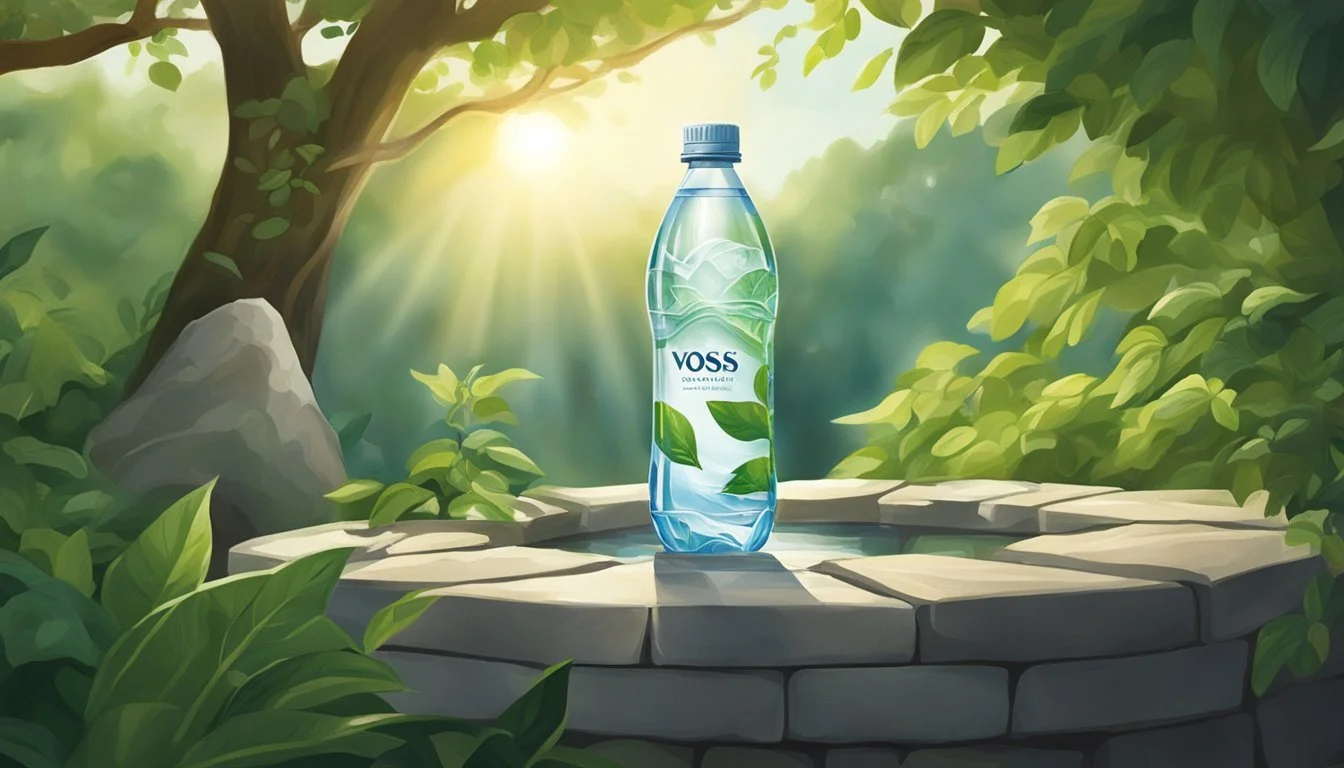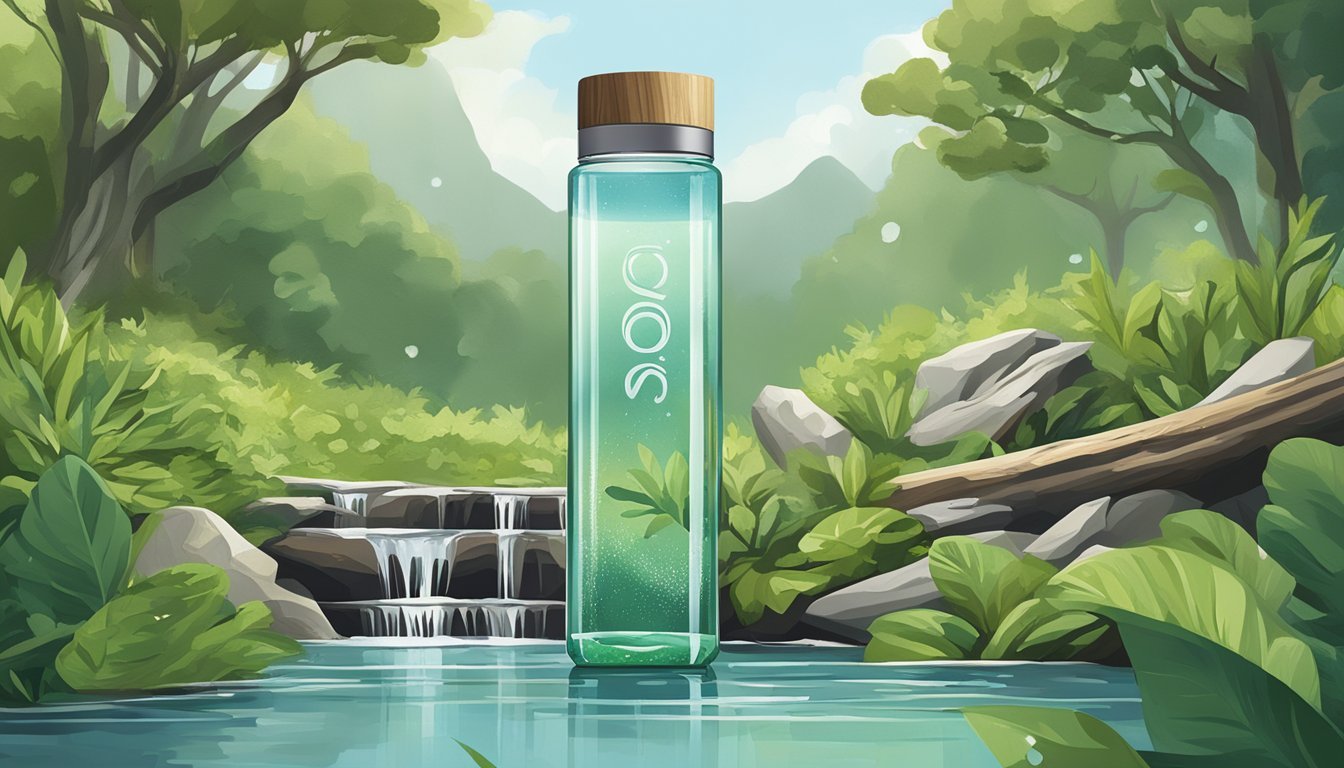Voss vs. The Well
Which Bottled Water is Better for You?
Choosing the right bottled water can elevate your hydration experience, and two popular options on the market are Voss and The Well. Voss is celebrated for its neutrality and crisp taste, making it a favorite among those seeking a refreshing drink without an aftertaste. In contrast, The Well prides itself on offering a blend of natural minerals that not only hydrates but also leaves a clean and satisfying finish.
When comparing these two, both have their distinct advantages. Voss’s sleek glass bottle and pure artesian water from Norway appeal to those who appreciate minimalism and quality. Meanwhile, The Well offers a health-focused option, emphasizing natural mineral content from careful source selection to cater to a more health-conscious audience.
For consumers weighing their options, it's essential to consider what factors matter most—whether it's the purity and smoothness of Voss or the mineral-rich, balanced hydration of The Well. Each brings something unique to the table, making them both worthy contenders in the competitive bottled water market.
The Importance of Hydration
Proper hydration impacts various aspects of health, including physical performance, cognitive function, and overall well-being. Staying hydrated is essential for maintaining critical bodily functions and optimizing health.
Understanding Hydration and Health Benefits
Hydration refers to the process of providing adequate fluids to the body's tissues and organs. Water, being the primary component, plays a crucial role in various physiological processes. It helps regulate body temperature, transports nutrients, and removes waste through urine and sweat.
Staying hydrated also aids in digestion and circulation. Dehydration, even mild, can lead to fatigue, reduced concentration, and headaches. For athletes, proper hydration is vital for peak performance as it helps maintain muscle function and reduces the risk of cramps.
Maintaining hydration benefits skin health, keeping it supple and aiding in healing. Drinking sufficient water can also promote kidney function, reducing the likelihood of kidney stones. Fluids rich in minerals, such as certain bottled waters, can offer added health benefits, including replenishing electrolytes lost during perspiration.
Comparing Bottled Water Brands
Bottled water brands offer a wide range of options, with each brand boasting unique features in terms of taste, packaging, and purification methods.
Market Variety and Options
The bottled water market displays a broad selection of brands, each striving to cater to specific tastes and preferences. Voss is known for its sleek, reusable glass bottles, positioning itself as a premium brand. Fiji emphasizes its natural artesian water source and eco-friendly practices.
Smartwater utilizes vapor-distilled technology and adds electrolytes for taste, targeting health-conscious consumers. Essentia is marketed for its high pH level, appealing to those looking for "supercharged" hydration.
Evian promotes its natural mineral content from the French Alps. Dasani and Aquafina are widely recognized for their affordability and availability, enjoying mass-market appeal.
Bottled Water Brands Overview
Voss water comes from a pristine artesian source in Southern Norway. Its clean taste and stylish packaging make it popular in luxury hospitality venues.
Fiji sources its water from sustainable aquifers in Fiji, highlighting its purity and natural mineral content.
Smartwater, through distillation, offers a crisp taste with added electrolytes, making it a favorite among athletes.
Essentia provides water with a pH of 9.5 or higher, using a proprietary purification process.
Evian delivers naturally filtered water from the Alps, rich in minerals.
Dasani and Aquafina are products of Coca-Cola and PepsiCo, respectively. Both undergo rigorous purification processes, ensuring consistent quality.
In summation, the choice between brands such as Voss, Fiji, Smartwater, Essentia, Evian, Dasani, and Aquafina often comes down to personal preference, lifestyle needs, and environmental considerations.
Understanding Water Quality
Quality of bottled water is determined by factors such as pH levels, mineral content, and purification processes. These aspects ensure the water is not only safe to drink but also pleasant in taste.
pH Levels and Acidity/Alkalinity
pH levels indicate how acidic or alkaline the water is. Voss water typically maintains a balanced pH level around 7, which is neutral. In comparison, The Well claims to offer slightly alkaline water, with a pH level of 8 or higher.
Alkaline water is believed to neutralize acid in the body, although scientific support for these benefits is limited. Maintaining an optimal pH level ensures the water does not taste too acidic or too bitter, contributing to a smooth drinking experience.
Mineral Content and Taste
Mineral content significantly impacts the taste and health benefits of bottled water. Minerals commonly found in premium bottled waters include calcium, magnesium, and silica. These contribute to a more refreshing and satisfying taste and provide essential nutrients.
Voss water, sourced from Southern Norway, is known for its purity but has a lower mineral content compared to others. The Well emphasizes its rich mineral profile, particularly highlighting trace minerals that enhance both flavor and potential health benefits.
Purification Processes
The purification process is critical to water quality by removing contaminants. Voss undergoes traditional filtration methods but also ensures purity through rigorous bottling standards. This maintains a high level of cleanliness without heavily altering the water’s natural properties.
The Well employs advanced purification, including reverse osmosis and UV exposure. These methods effectively eliminate contaminants and ensure safety, although they might strip away some beneficial minerals. The balance between purity and mineral retention is crucial for both taste and health benefits.
Voss vs. The Well: Detailed Comparison
This comparison highlights the differences between Voss and The Well bottled waters in terms of source and origin, production and packaging, and flavor profiles and palate.
Source and Origin
Voss is sourced from an artesian well in Southern Norway, providing naturally pure water. The water is drawn from deep underground through layers of sandstone and volcanic rock, ensuring it remains unpolluted.
The Well originates from a natural spring water source, often filtered through natural sediment layers. These sources may vary, but each is carefully selected for purity and natural mineral content.
Production and Packaging
Voss utilizes an environmentally conscious approach with sleek glass bottles and some plastic alternatives. The glass option is lauded for its recyclability and premium feel. The Well primarily uses plastic packaging, with efforts to minimize its environmental impact through recycling programs.
Voss undergoes minimal processing to maintain its natural purity, while The Well may employ more rigorous filtration to ensure safety and taste consistency.
Flavor Profiles and Palate
Voss is celebrated for its clean, crisp taste with a slight mineral taste attributed to its artesian origins. The absence of any overpowering flavors makes it a versatile choice for consumers seeking subtlety and purity.
The Well offers water with a rounded, refreshing flavor, often influenced by the minerals it picks up during its journey through natural filters. This can result in a slightly more pronounced taste that some customers appreciate for its character.
Environmental Considerations
Voss and The Well differ significantly in their approaches to environmental considerations, especially regarding sustainability practices and the materials they use for their bottles.
Sustainability and Eco-Friendly Practices
Voss uses glass bottles for many of its products, which are reusable and lead to a lower carbon footprint compared to single-use plastic bottles. This aligns with a commitment to reducing environmental impact.
The Well emphasizes the use of 100% recyclable materials and aims to minimize waste by adopting eco-friendly packaging solutions. Their practices often focus on increasing the use of renewable resources and promoting a circular economy.
Both brands advocate for environmental responsibility, but their approaches vary. Voss focuses on high-quality, durable materials, while The Well highlights renewable and recyclable content.
Plastic Use and Alternatives
Voss offers both glass and plastic bottles, though the latter are BPA-free. The glass options are favored for their lower environmental impact because they can be reused multiple times. However, shipping these bottles incurs a higher carbon footprint due to their weight.
The Well strictly uses recyclable and BPA-free plastic bottles designed to reduce plastic waste. Their efforts include researching new materials that could further reduce their environmental impact. Additionally, The Well's lighter packaging helps lower the carbon emissions associated with transportation.
This focus on innovative, sustainable packaging makes The Well a competitive option for those concerned about plastic use and its long-term effects.
Consumer Considerations and Conclusions
When comparing Voss and The Well bottled water, consumers often consider factors such as price, accessibility, personal preferences, and lifestyle needs.
Price and Accessibility
Voss is known for packaging its water in glass bottles, which contributes to its luxurious image. This choice of material can make Voss more expensive.
The Well, on the other hand, often offers more affordable options. It is known for being more widely accessible, frequently available in supermarkets and convenience stores.
Table Example:
Brand Price Range Packaging Material Voss $$$ Glass, Plastic The Well $$ Plastic, Box
The packaging of The Well sometimes uses boxed water, emphasizing environmental consciousness. Both brands ensure that their products meet safe drinking water standards.
Personal Preference and Lifestyle
Many consumers choose Voss for its clean, crisp taste and the aesthetic appeal of its glass bottles. It fits well with a lifestyle that values luxury and sophistication.
The Well often appeals to those who prioritize sustainability. Its use of environmentally friendly materials like boxed water aligns with the values of eco-conscious consumers.
For individuals frequently on the go, The Well’s wider availability makes it a convenient choice, whereas Voss might be preferred for special occasions due to its premium packaging.
Final Recommendations
When deciding between Voss and The Well, consider your budget, personal values, and specific needs. If luxury and taste are priorities, Voss is a suitable choice.
For those conscious of the environmental impact and looking for practical, everyday hydration options, The Well offers a compelling choice with its sustainable packaging and accessibility.
Ultimately, the decision hinges on individual preferences and lifestyle requirements. Both brands offer unique benefits depending on what the consumer values most.
More About Voss
Mountain Valley Spring Water vs Voss: Which Bottled Water is Better?
Voss vs Whole Foods Italian Still Mineral water: Which Bottled Water is Better?
More About The Well
Cascade Mountain vs The Well: Which Bottled Water is Better?
Hawaiian Springs vs The Well: Which Bottled Water is Better?
Icelandic Glacial vs The Well: Which Bottled Water is Better?
Mountain Valley Spring Water vs The Well: Which Bottled Water is Better?
Nestle Pure Life vs The Well: Which Bottled Water is Better?
Richard's Rainwater vs The Well: Which Bottled Water is Better?
The Well vs Kirkland Signature: Which Bottled Water is Better?
The Well vs Talking Rain AQA: Which Bottled Water is Better?
Whole Foods Italian Still Mineral water vs The Well: Which Bottled Water is Better?






